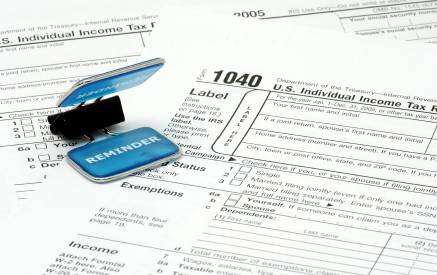The tax deadline is April 15 in most years, unless that date falls on a holiday or weekend. In that case, the tax deadline will fall on the next business day. In 2023, the deadline is April 18 for most filers, as Emancipation Day falls on a Sunday and will be observed on April 17.
If you don’t get your taxes filed on time, you should definitely look into filing a tax extension; otherwise, you may owe the IRS stiff penalties or fees for filing your taxes late. Let’s look at a couple situations and how they might work out for different tax filers.
What Happens If You File Your Taxes Late?

Failure-to-File and Failure-to-Pay Penalties
The most important thing you can do is file your taxes, even if you can’t pay them right away. The reason is that the failure-to-file penalty is usually worse than the failure-to-pay penalty. Because of this, it’s usually best to file, then work with the IRS to figure out a payment schedule or other arrangement.
Failure-to-file penalty. The penalty for filing your taxes late is usually 5% of the tax liability, per month, until the taxes are filed. The cap for the failure to file penalty is 25% of your unpaid taxes. The clock starts rolling the day after the due date your return was not filed. If you wait at least 60 days beyond the due date or extended due date, the minimum penalty you will pay is the lesser of $135 or 100% of the unpaid taxes. (Keep in mind, this is the minimum penalty).
Failure-to-pay penalty. Not paying your taxes can also bring about some hefty penalties and fees. Not paying your taxes by the due date usually results in a penalty percentage of your unpaid taxes for each month or part of a month after the due date that the taxes are not paid. This penalty can accrue to as much as 25% of your unpaid taxes.
What Happens If You Don’t File Your Taxes?
The failure-to-file and failure-to-pay penalties both assume you will pay your taxes within a reasonable time frame. If you are a few months late, chances are good that you will only be subjected to penalties – assuming your tax return checks out fine.
The IRS may take a deeper look into your tax return and determine if you owe underpayment penalties. These include (from least severe to most severe) a Frivolous Return, Negligence, Civil Fraud and Criminal Fraud (tax evasion). At the low end of the scale, you will be subjected to additional fees on top of the late penalties and fees mentioned above. At the high end of the scale, you could face jail time.
File a Tax Deadline Extension If You Will Be Late
If you know you will file your taxes late, then do yourself a favor and file an extension. It is free and easy to do – just fill out a simple form and file it electronically, or mail it to the IRS. Once you file your deadline extension, you have until Oct. 16 (usually Oct. 15) to file your taxes. Keep in mind that if you owe money to the IRS, that is due by the original tax-filing deadline: April 18, 2023 (April 15 most years). You can get around owing additional fees if you pay at least 90% of your tax bill by the April deadline.
Military Members May Be Eligible for a Longer Extension
Some military members may be eligible to extend their tax deadline if they served in a combat zone in the previous or current tax year. Here is an FAQ from the IRS website which covers some of the common questions about this benefit. It’s important to note that this extension will be approved, but you should notate this when you file your taxes. This additional military extension can help you avoid the failure to file and failure to pay penalties, provided you file your tax return by your new tax deadline as determined by your extension eligibility.



About the comments on this site:
These responses are not provided or commissioned by the bank advertiser. Responses have not been reviewed, approved or otherwise endorsed by the bank advertiser. It is not the bank advertiser’s responsibility to ensure all posts and/or questions are answered.